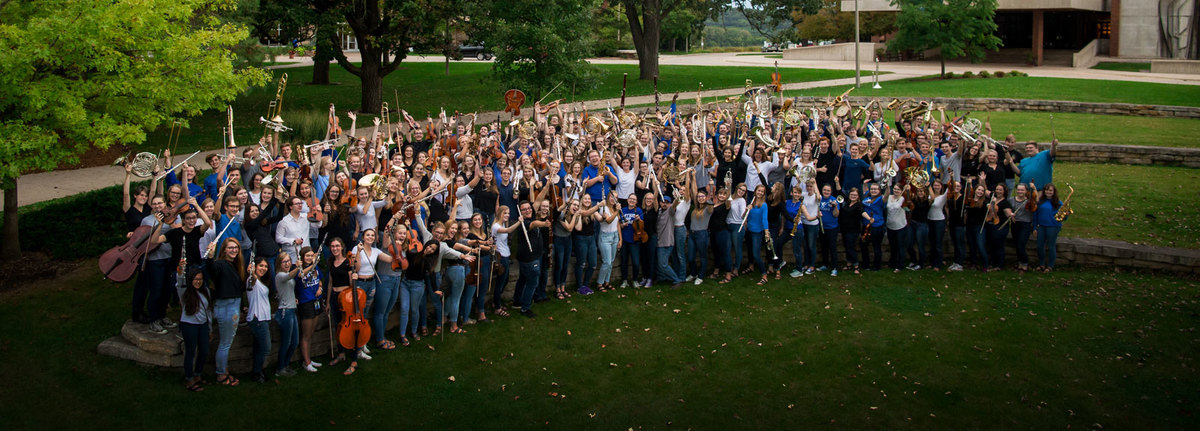An Iowa College in the Liberal Arts Tradition
Music
Why Study Music at Luther?
To be a successful music professional, you need a strong academic program with lots of performance opportunities that can help you build your knowledge and skills. That’s exactly what you’ll find when you choose to study music at Luther.
An Impressive Program with Accomplished Faculty
Luther has one of the largest liberal arts undergraduate music programs in the nation. It offers a challenging curriculum that includes core courses and electives (that you choose based on your interests and goals).
Luther’s music program is also nationally accredited, which means it’s evaluated every 10 years to ensure it meets the highest level of industry standards. It’s supported by nearly 50 accomplished faculty members that have a wide range of experience and education. Their goal is to give you the individual attention and accessibility you need to reach your full music potential.
At Luther, you’ll study music within the context of the liberal arts. This means you’ll take courses that help you think critically and communicate effectively. With a music degree from Luther, you’ll have the education and skills you need to progress in your career.
An Abundance of Performance Opportunities
Whether you want a music career in teaching, performing, or conducting, having strong and meaningful opportunities to perform can help you become a well-rounded professional. Luther offers numerous ways for you to gain this experience. You can choose to participate in ensembles (including five choirs, three orchestras, two bands, and two jazz bands—with some touring nationally and internationally), faculty-coached chamber groups, applied lessons, recitals, and master classes. Luther also stages a full opera performance each year.
Careers and Graduate Programs
Luther’s music program graduates often choose careers in music theory/ear training, education, conducting, opera, history, composition, jazz, church music, and performance.
Music Education is one of the most popular paths for music majors. Luther graduates have succeeded in securing excellent positions in the music education field at all levels: elementary, middle school, high school. With additional study at a university, music education students can also earn a degree in music therapy.
Other graduates of Luther’s music program decide to become professional performers with national touring performances. Some also choose to attend prestigious conservatories and universities for graduate school to further their education.
Generous, Renewable Scholarships
Luther offers a wide variety of scholarships and awards based on musical talent, regardless of whether you’re a music major or a non-music major.
Interested in seeing a performance?
Attend or stream Luther ensembles in concert.
Incoming Music Majors and Minors:
There is not a separate application process to be a music major or minor. Incoming majors/minors are prompted to take a music entrance exam prior to registering for classes. Please view the sample test for more details.

